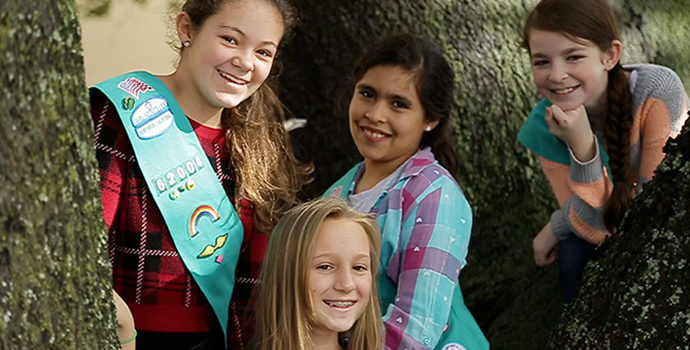
Girl Scouts Can Help Parents Make Energy-saving Decisions at Home, Research Shows
Adults get most of the credit for managing the world, but children play a much bigger role in society than we often imagine.
Using behavioral theory and approaches borrowed from public health, Stanford researchers measured the effects of a youth energy-behavior program on the Girl Scout participants and their families. The results, published in Nature Energy, show that educating the girls about energy-saving behaviors led to positive changes in both the girls and their families.
The participants belonged to 30 Girl Scout troops from northern California. Each of the troops took part in Girls Learning Environment & Energy, a program that educates the scouts on energy use through either a home-energy or a food-and-transportation lens. The girls and their parents answered questionnaires about their electricity, food, and transportation energy use before the program, immediately after the program, and eight months after the program to test the maintenance of changed behaviors.
“We found that engaging people in reconsidering their energy use is a family affair. Fourth- and fifth-grade Girl Scouts shared their newfound interest, enthusiasm, knowledge and skills with their families. In turn, that information and interest diffused to parents,” said Nicole Ardoin, an associate professor at Stanford Graduate School of Education.
